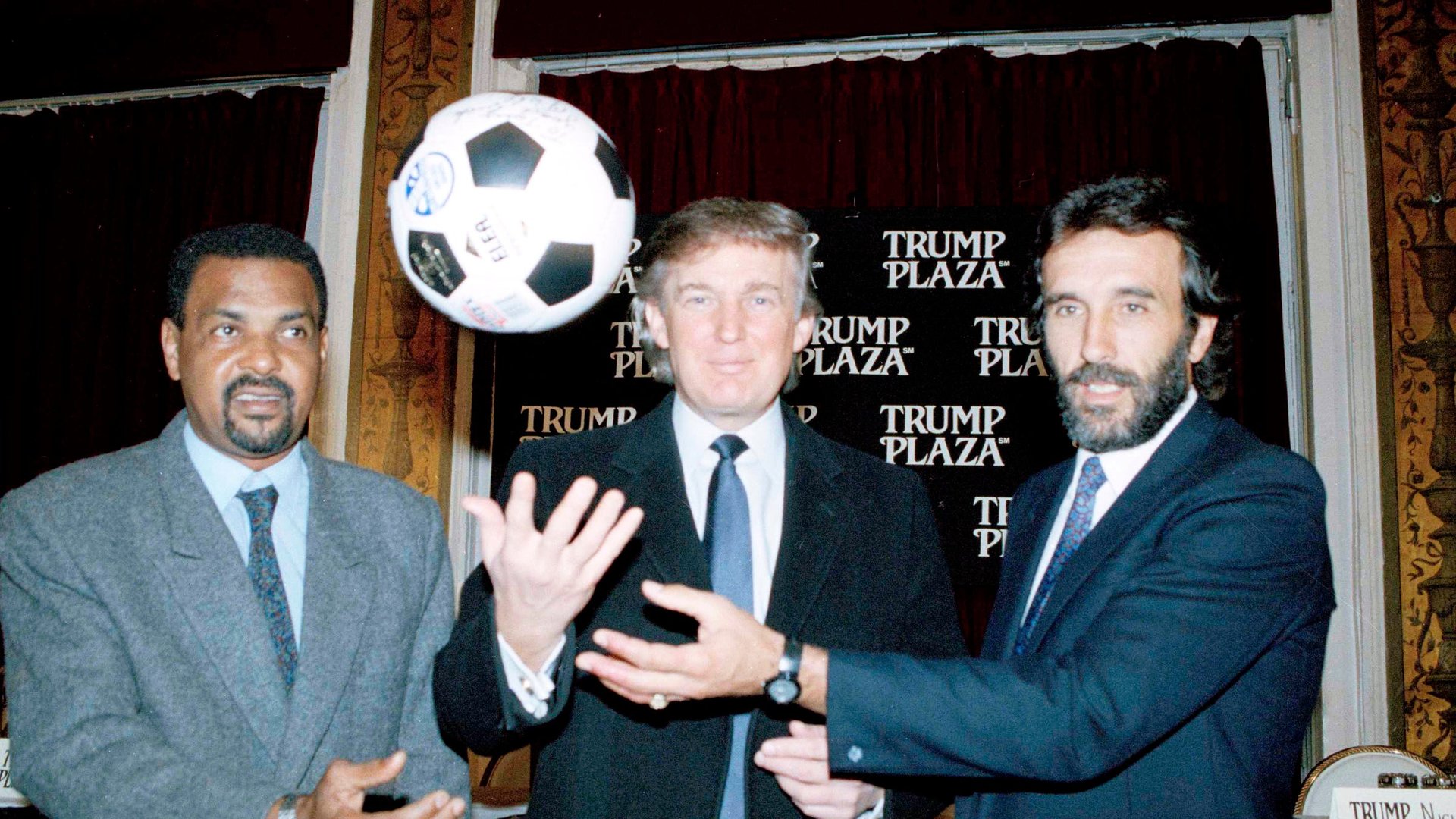Trump can try to kill NAFTA, but it will still host the World Cup in 2026
The US, Canada and Mexico will jointly host soccer’s World Cup in 2026—a reminder that the economic ties binding the three nations together will outlast US president Donald Trump’s bluster about trade back-stabbing.


The US, Canada and Mexico will jointly host soccer’s World Cup in 2026—a reminder that the economic ties binding the three nations together will outlast US president Donald Trump’s bluster about trade back-stabbing.
Why? There’s just too much money at stake.
Many US fans worried that FIFA, the international soccer federation, wouldn’t reward the US and its neighbors with the Cup after US prosecutors decimated the organization’s leadership in a series of corruption prosecutions that traced multi-million dollar bribes through shell companies. The on-going effort resulted in eight guilty pleas and at least two convictions, and could be seen as a trial run for the inquiry peering into Trump and his circle’s financial dealings.
But despite noise that Morocco’s competing bid might take advantage of anger about the prosecution and bad feelings engendered by Trump, the reality is that the joint bid was likely to provide the most revenue for FIFA. TV rights, ticket fees, merchandise sales and attendance are likely to be maximized with the three-nation bid. US soccer officials expect the Cup will make an $11 billion profit for FIFA.
Though relations between the three nations are at a nadir with US president Donald Trump engaged in a testy and abortive renegotiation of the landmark North American Free Trade Agreement, even rumors that he will rip up the agreement are belied by the deep economic connections on the American continent. The US national soccer team’s dismal failure to qualify for the World Cup has masked the country’s importance to the economic side of the game.
The same organization that runs MLS, the oft-criticized US and Canadian professional soccer league, is also in charge of monetizing Mexico’s beloved national soccer team—in part because that makes it easier to host lucrative exhibition matches north of the Rio Grande. US sportswear giant Nike vies with Germany’s Adidas to clothe the best teams in a sport considered an also-ran here. US digital media conglomerates are now key players when the United Kingdom’s Premiere League auctions off the right to broadcast its highly-anticipated matches.
The cash—and the spectacle— of the Cup clearly appealed to Trump, who sent secret letters to FIFA promising to rescind his attempts to ban citizens of Muslim-majority countries from visiting the US during the Cup. The resilience of the Cup bid despite Trump’s repeated attacks on Mexican people, Canadian leaders and general cosmopolitanism may be indicative of NAFTA’s fate: While public rhetoric is driven by Trump’s personal resentments and grievances, the economic realities may yet allow cooler heads to prevail. Trump has already blown past key deadlines to seek Congress’ approval for any changes to NAFTA this year.
Then again, Trump’s hidden effort to back the Cup may be a result of some old-fashioned FIFA chicanery. The president still hasn’t shared his tax returns with the American public, even as numerous members of his circle have pled guilty or been indicted for hidden financial connections to foreign powers.